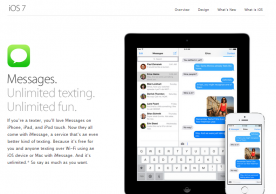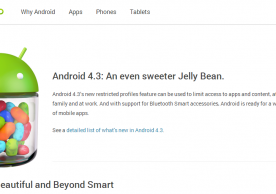Android users are in trouble as a new malware is running wild with dirty intentions. Previously, malicious programs on Android were not that big of a threat due to poor coding. They'll come, and then they'll go without causing havoc and leaving users with a pitch black display. However, a newly detected Trojan called Obad, appears to be more advanced as a malware made for a Windows device. We understand the malware is capable of blocking un-installment requests, take advantage of multiple vulnerabilities that plague Android and much more.
Kaspersky Labs researchers first discovered the new malware recently, and named it Backdoor.AndroidOS.Obad.a. This is the name for what appears to be the most sophisticated Android malware to ever be conceived, and it could also open the door for new security-evading Trojans that target mobile devices. From the moment Obad.a finds its way on your Android device, it will proceed to make itself invisible until it's too late to do anything.
According to Kaspersky Labs expert Roman Unuchek, Obad.a is capable of sending personal files to Bluetooth devices, send user contact information to a server, and receive account balance, along with other illegal activities.
"The Trojan receives instructions from the C&C and records them in the database. Each instruction recorded in this database contains the instruction's sequence number; the time when it must be executed, as ordered by C&C; and parameters," Unuchek said.
The command list is as follows:
1. Send text message. Parameters contain number and text. Replies are deleted.
2. PING.
3. Receive account balance via USSD.
4. Act as proxy (send specified data to specified address, and communicate the response).
5. Connect to specified address (clicker).
6. Download a file from the server and install it.
7. Send a list of applications installed on the smartphone to the server.
8. Send information about an installed application specified by the C&C server.
9. Send the user's contact data to the server.
10. Remote Shell. Executes commands in the console, as specified by the cybercriminal.
11. Send a file to all detected Bluetooth devices.
The good news is, Kaspersky Labs has already informed Google, so this problem should be solved quickly. Furthermore, it seems Android users could be looking into a future where an anti-virus application is needed at all times, just like with Windows.
© Copyright 2020 Mobile & Apps, All rights reserved. Do not reproduce without permission.most read
related stories
more stories from OS / Software
-
HTC reportedly considering Android/Windows Phone dual-booting smartphone as Microsoft pushes for deeper Windows mobile integration
Microsoft has reportedly started talks with HTC to add its Windows OS to the phone maker's Android smartphones and HTC is apparently considering to make a Windows Phone/Android dual-booting smartphone.
ernest hamilton -
iOS 7 Chrome Incognito mode leaks private searches due to bug
A bug in Chrome for iOS 7 has caused Google's mobile browser to leak private searches made in 'Incognito' mode.
ernest hamilton -
Sprint HTC One Android 4.3 Jelly Bean already rolling out, AT&T, T-Mobile & Verizon to follow
HTC has announced that Sprint has already started to roll out the Android 4.3 update to the HTC One, AT&T and T-Mobile will follow in mid-October, while Verizon will release it by the end of the month.
ernest hamilton -
Microsoft Windows 8.1 now available for pre-order
The new Windows 8.1 has gone up for pre-order on the Microsoft Store, ahead of the official launch on Oct. 18.
ernest hamilton -
Apple acknowledges iOS 7 iMessage issue, promises fix via upcoming software update
Apple has acknowledged the iOS 7 iMessage issue and promised to provide a fix in an upcoming software update.
ernest hamilton -
Galaxy S4, Galaxy S3, Galaxy Note 2 Android 4.3 update rollout confirmed by Samsung Canada and French SFR
Samsung Canada and French carrier SFR have confirmed the Android 4.3 Jelly Bean rollout schedule for the Samsung Galaxy S4, Galaxy S3 and Galaxy Note 2.
ernest hamilton -
Unlocked HTC One gets Android 4.3 Jelly Bean, U.S. and Canadian versions’ update slightly delayed
The unlocked, international HTC One is getting Android 4.3 Jelly Bean now, but the U.S. and Canadian versions will 'slightly miss' the end-September timeframe.
ernest hamilton -
Samsung Galaxy S4, Galaxy S3, Galaxy Note 2 to get Android 4.3 Jelly Bean by year-end
The Samsung Galaxy S4, Galaxy S3 and Galaxy Note 2 are reportedly slated to get Android 4.3 Jelly Bean in the fourth quarter, by year-end.
ernest hamilton















